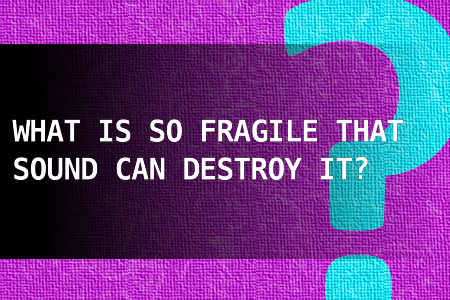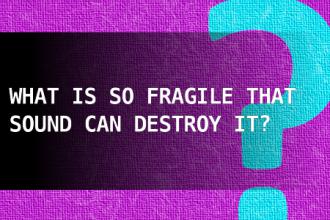What is so fragile that sound ...
Brain Teasers
[1692] What is so fragile that sound ... - What is so fragile that sound can destroy it? - #brainteasers #riddles - Correct Answers: 171 - The first user who solved this task is Sanja Šabović

2015-12-06

